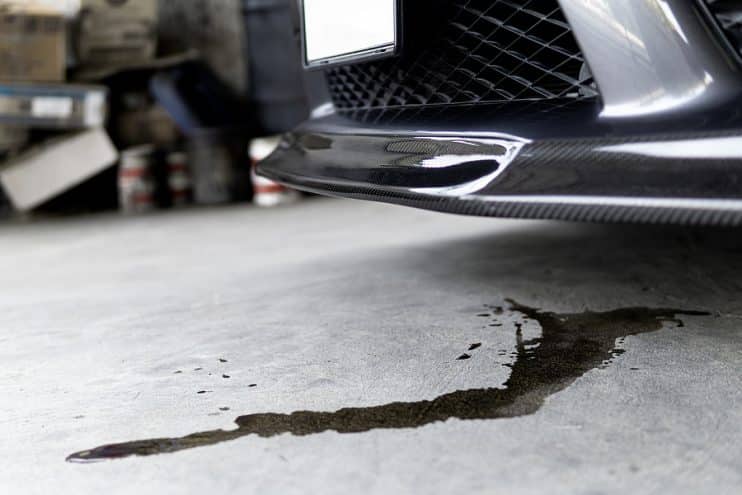
If you’ve noticed a few drops of oil on your driveway after you move your car, it might not seem that big a deal. But failing to fix an engine that’s leaking oil, even just a little, can result in a more significant and costly repair in the long term. Discover the signs and causes of a leak, the consequences if you continue to ignore it, and what to do if your car leaks oil.
Table of contents:
- How to tell if you have a leak
- What causes a leak?
- Can you drive a car with an oil leak?
- How much does it cost to fix an oil leak?
- What should I do if my car is leaking oil?
How to tell if you have a leak
Here are the top 9 signs that your car has sprung an oil leak:
- Dark brown puddles of liquid under the vehicle that is slick to the touch
- Blue smoke coming from your engine
- The oil light on your dashboard flickering on and off
- Your engine overheating or stalling
- An intense burning smell coming from the engine
- A sizzling noise coming from the engine
- A ticking noise from the engine when the car is idle
- Low oil levels when you measure using a dipstick
- Oily residue around engine parts
What causes a leak?
Any number of problems can cause an oil leak. Some of them are relatively small and easy to repair yourself, while others may need attention from a professional. Here are some of the most common factors that can cause your engine to leak oil.
Oil drain plug
The oil drain plug sits at the bottom of the sump and drains out the old oil before an oil change. Ideally, you should replace the oil drain plug every time you replace the oil in your engine. If this doesn’t happen, the plug’s washer or seal can wear out or dry up over time, causing a leak.
Even a new drain plug can cause an oil leak if it’s screwed on too loosely or over-tightened. A loose drain plug has obvious consequences, but over-tightening your drain plug can also cause damage to the threads, leaving damaged areas where the oil can leak through.
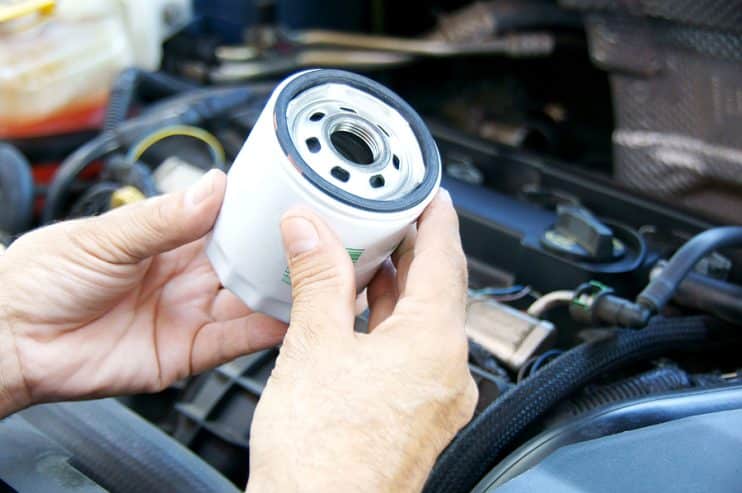
Oil filter
The oil filter helps to remove any nasty contaminants that can build up in your oil and cause wear and tear on your engine. If your oil filter is too loose, it can cause leaks.
A rusty oil filter is another issue that needs to be addressed. Sometimes you can clean rusty deposits off, but if your filter is badly rusted, it will leak oil eventually.
Oil pan
The oil pan sits at the bottom of your engine. It’s a crucial component of the engine’s lubrication system. If your oil pan is rusted or has a crack, this essential oil leaks out, causing the engine parts to rub against each other, eventually destroying your engine.
It’s possible to replace your oil pan with just a few simple steps, but if in doubt, take your motor to a professional and get the job done correctly.
Valve cover gasket
These seals help prevent oil leakage, but they can degrade over time with wear and tear. If they allow engine oil to leak out and escape the engine lubrication system, you’re in a similar scenario to a damaged oil pan – engine failure and maybe even fire.
Oil pressure sensor
It’s vital to have a fully functioning oil pressure sensor. They’re often made from plastic, so they can crack or leak. If it’s the sensor that’s leaking, the whole oil pressure sensor will need to be replaced.
Crankshaft and camshaft seals
Crankshaft seals stop oil from leaking outside the crankcase as it turns in the engine. They’re usually made of metal and slightly flexible material, such as rubber or silicone.
Camshaft seals are made of durable rubber, but they can crack and leak oil if the rubber hardens over time, causing the camshaft to leak.
It can be difficult and labour-intensive to replace these seals, and the damage a broken seal can cause can be catastrophic. So having your mechanic replace them is probably a good idea.
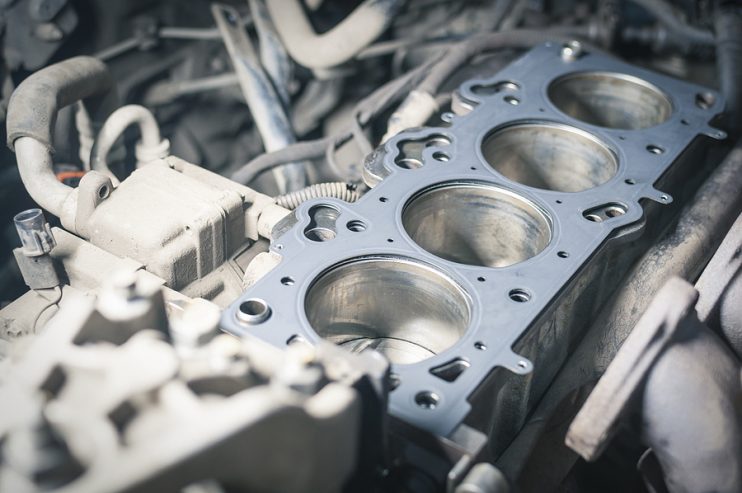
Cylinder head gasket
The cylinder head gasket stops your engine oil and coolant from mixing. It works harder than any other gasket in your engine. Once it’s blown, you’ll notice a significant loss of power in your vehicle.
You’ll also run the risk of engine oil mixing with your coolant, which can cause significant and irreparable damage to your engine. Therefore, it’s important to get a faulty or failing cylinder head gasket checked out and replaced if necessary.
Can you drive a car with an oil leak?
You should never, ever ignore an oil leak. If you suspect your car is leaking engine oil, you should always try to work out what’s causing it or take it to a mechanic for a check. An oil leak can cause irreparable damage to your engine and possibly even cause your engine to fail or blow up.
If you need to drive your car somewhere, check the oil levels first with a dipstick. If your oil levels are below the minimum level, you could find yourself in trouble mid-drive. However, if you’re driving a short distance of 10 miles or less, it may be less risky.
How much does it cost to fix an oil leak?
The cost of repairing an oil leak depends on the reason behind the leak, and whether it’s a minor problem or a major headache. So you could be looking at anything from around £100 to replace a minor part, such as an oil pressure sensor or oil filter, to over a thousand pounds to replace a cylinder head gasket.
The price will also depend on your make and model of car, the size of your engine, and the hourly labour costs of your local garage. So it’s always worth getting a couple of quotes if you can.
What should I do if my car is leaking oil?
Here’s what to do if you suspect an oil leak:
- Try to work out where your leak is coming from if you can. For example, inspect the underside of your car and any seals you can access.
- Take a look at your service manual to determine if the problem is something you can repair at home or if you need to take it to a professional.
- If you’re repairing the leak yourself, ensure you have all the correct parts and tools before you start, including a torque to tighten any bolts.
- Check your oil levels and top up if you need to.
- Start your car and inspect the underside to see if any oil continues to leak.
- If there is no further leakage, take your car for a test drive to ensure everything is running as it should be.

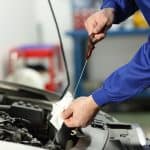
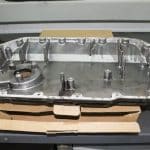
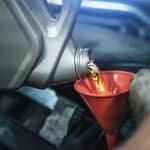
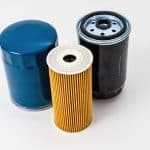
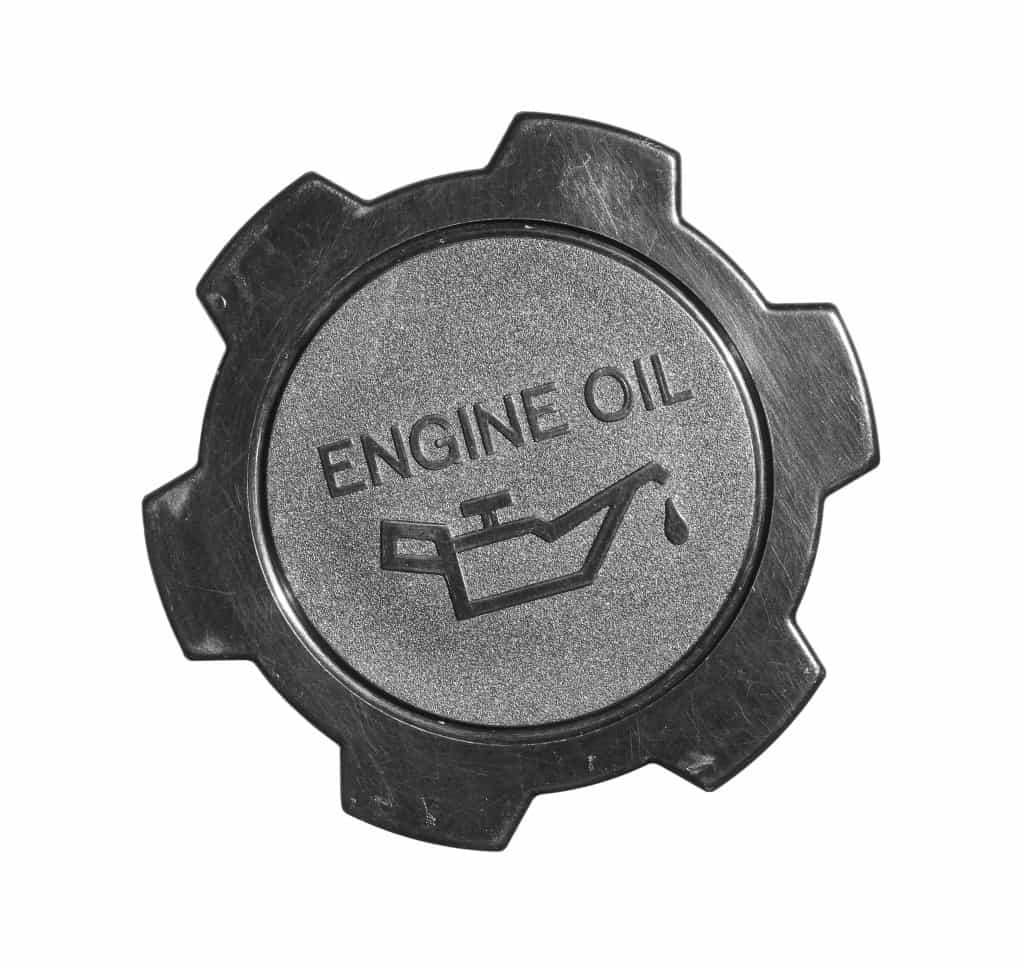
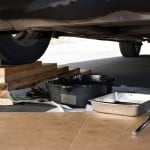
.png)